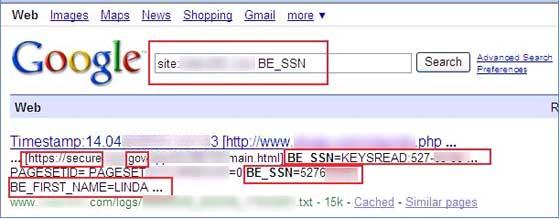I thought to myself ... here we go again ... burying our heads in the sand that all personal and financial information is hacked from retailers. Of course, that isn't to say that none of the stolen information is coming from retailers, either.
The conclusion was based on 50 retailers being interviewed and 21 of them saying they had been breached. Of these 21, allegedly only 3 had reported a data breach.
This led me to wonder if any of these retailers do business in an area, where disclosing data breaches is a matter of law?
My humble guess is that in the litigation happy society we live in today, no one is going to report anything unless they have to. As long as no one is certain (or they can get away with saying that) the information is probably buried, or someone comes up with a rationalization that it really didn't happen.
Going a little further, there has to be a lot of information being stolen that no one is even aware has been compromised. The fact that no one is aware it was compromised makes it easier to be used by the criminal element, effectively.
The sad truth is even if you could make computer systems bulletproof, human beings will continue to compromise information, either via social engineering techniques or to obtain financial compensation. We've made some of this information worth a lot of money.
Of course, information thieves often combine technology and social engineering, also. In the mysterious world of information crime, one shoe rarely fits all.
Right after reading the PCWorld article, I happened upon more research from Finjan, which might provide evidence that there must be a lot of computer systems out there that are NOT very "bulletproof."
As stated on Finjan's MCRC blog:
In our recent MPOM report, we reported on a Crimeserver hosting 1.4G of unprotected stolen data, including passwords, medical data, emails etc.Additionally, Finjan reported:
Many people asked us how we found the data. Was the data secure or not?
Although we cannot disclose all information to the public (for obvious reasons), I can say that the data on that Crimeserver was unprotected, meaning anyone could access it.
Today we came across another Crimeserver - it seems that we are finding one every other day...
As we disclosed in our Q3/2006 Trend report, malicious code is hosted on caching servers of leading Search Engine Providers. This time we reported in our recent MPOM that stolen end-user data is also stored on these caching servers. Yes, your passwords, Social Security numbers, Online banking information …. no data is safe, as the examples below illustrate.
Even more alarming, it didn't take a lot of know-how to access all this information. The people at Finjan were able to do it, using simple Google searches.
I highly recommend taking a look at the entire blog post from Finjan (link provided at the bottom of this page) -- there are some alarming visual presentations indicating how much information is out there.
I'll include one, which shows a compromised (actual info blocked out) SSN:

The blog post also has visual presentations (screenshots) of user names and passwords to internal company sites, porn sites and online banking sites.
Now let me see ... if stolen information is being hosted on unprotected (anyone can access) crimeservers ... and it is being indexed (cached) by search engines ... it's probably safe to assume we don't have any real idea how much stolen information there is out there.
Also, please note it's safe to say not all this information came from retailers.
Last, but not least, I've seen commentary that we should blame Google for all this. First of all, I doubt that Google is the only place this information can be found. Another thing to contemplate is that thinking like this is as narrowly focused as thinking that retailers are to blame for most of the stolen information out there.
Unless we stop blaming each other -- we are going to be a long way from achieving transparency in data breaches. Exposing problems often is the first step in correcting them.
Until we embrace transparency, the people to blame (criminals) are going to be laughing all the to the bank.
Finjan post from their MCRC blog, here.

2 comments:
You just keep spreading the good news, don't you?
Seriously, though - keep it up. Unless all consumers are aware of just how prolific their information is, and how easily accessed it is, they (the consumers) won't bother to guard their information any more than they are now.
Re "The fact that no one is aware it is being compromised makes it easier to be used by the criminal element, effectively", I just read on the BBC, no less (http://news.bbc.co.uk/2/hi/business/7422042.stm), that Experian (a credit reporting agency in the UK) has checked its records on identity theft and found that the average ID theft takes 18 months to surface. 18 months!
There are other interesting factoids in the Experian report - I've blogged on some here: http://blog.noticebored.com/2008/05/profile-of-identity-theft-victim.html
Kind regards,
Gary
Post a Comment